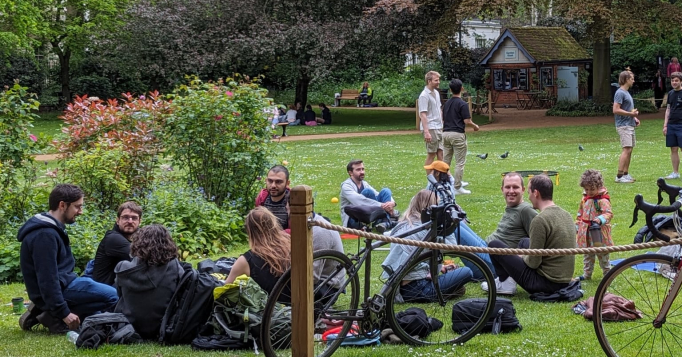There are some moments of your life when the reality of suffering really hits home. Visiting desperately poor parts of the world for the first time. Discovering what factory farming actually looks like after a childhood surrounded by relatively idyllic rural farming. Realising too late that you shouldn’t have clicked on that video of someone experiencing a cluster headache.
Or, more unexpectedly, having a baby.
One of 10^20 Birth Stories This Year
With my relaxed and glowing pregnant wife in her 34th week, I expect things to go smoothly. There have been a few warning signs: some slightly anomalous results in the early tests, the baby in breech position, and some bleeding. But everything still seems to be going relatively well.
Then, suddenly, while walking on an idyllic French seafront, she says:
"I think my waters have broken".
"Really? It’s probably nothing, let’s just check whether that’s normal."
After a leisurely walk home, and a crash course on premature membrane rupture, we realise that, yes, her waters have definitely broken. We’re about to be among the 7–8% of parents who’ll have a premature baby. We call the hospital. They tell us to come in immediately.
One slightly awkward bus journey later, and we’re at the maternity ward. No contractions yet, but the doctors tell us that they might start over the next few days. If they don’t come within the week, they’ll induce labour. They prepare a room, and ask how we want to do this, nudging towards a caesarean. We agree and I head home to prepare things for an imminent arrival. At 7am the next morning, the phone rings: she’s having the baby. With no buses running, I sprint to the hospital, take a wrong turn, and rather heroically scale a three-metre wall to avoid a detour.
Bursting through the hospital wards, smelling distinctly of sweat, I find my wife there, in all green and a mesh hat, looking like a nervous child. We’re allowed to exchange an awkward “good luck” with everyone else watching. Hospita





Looking for you guys in the market, but it’s packed. Where are you sat?